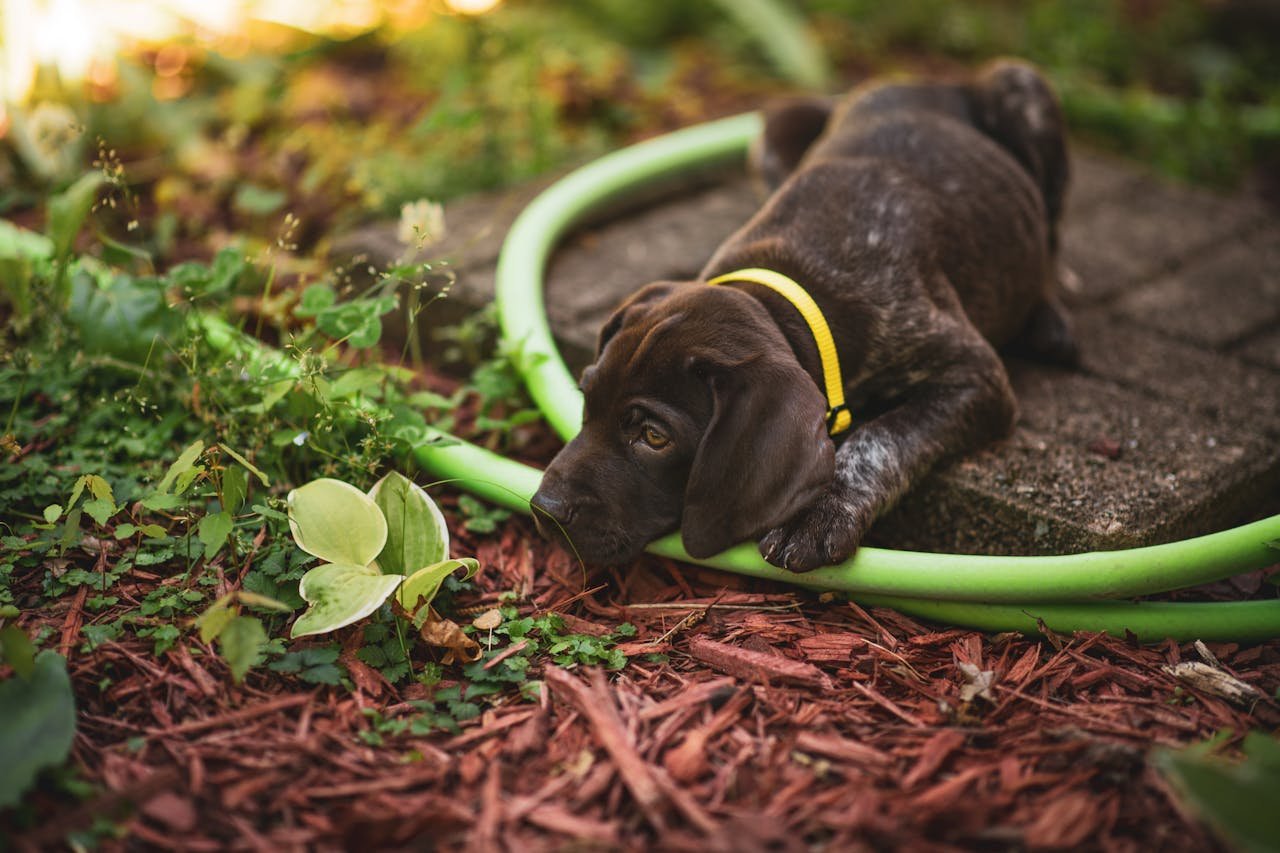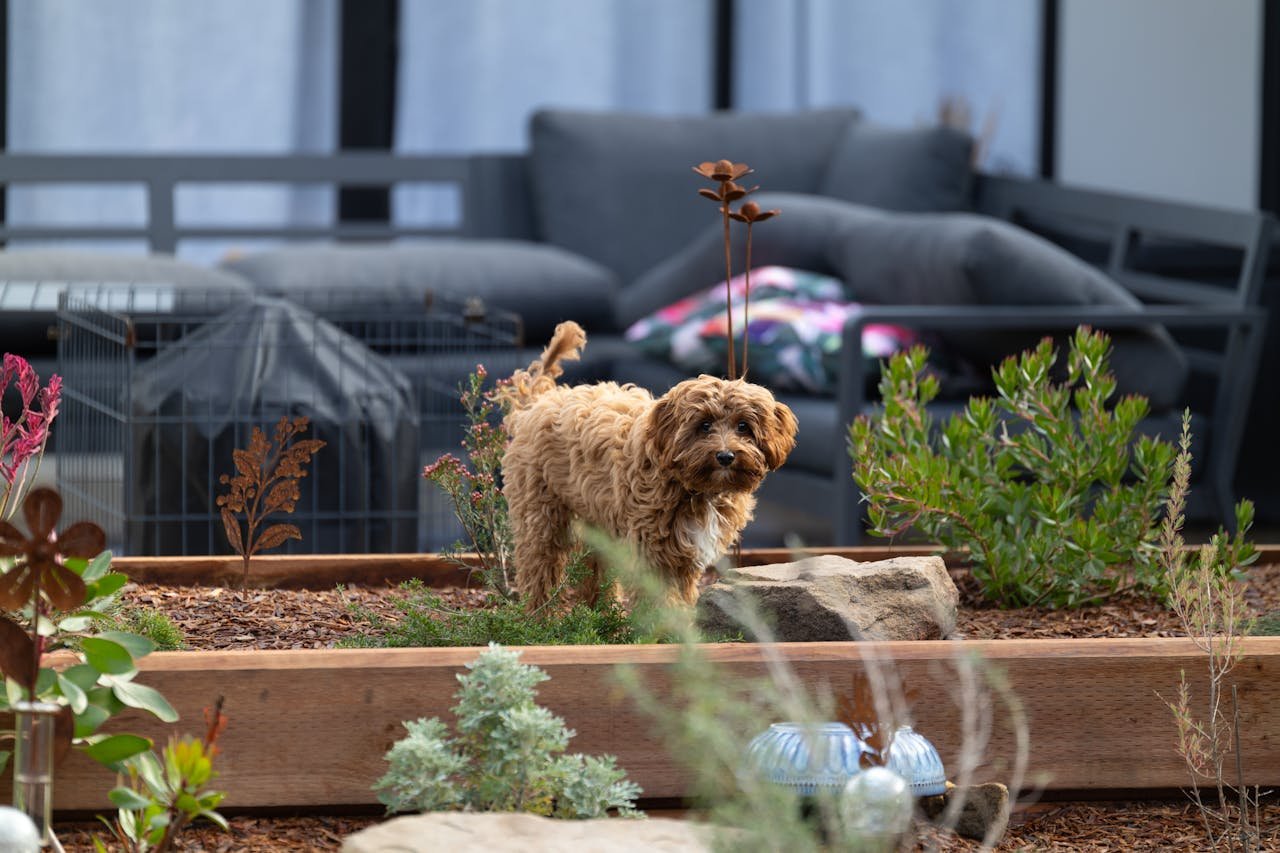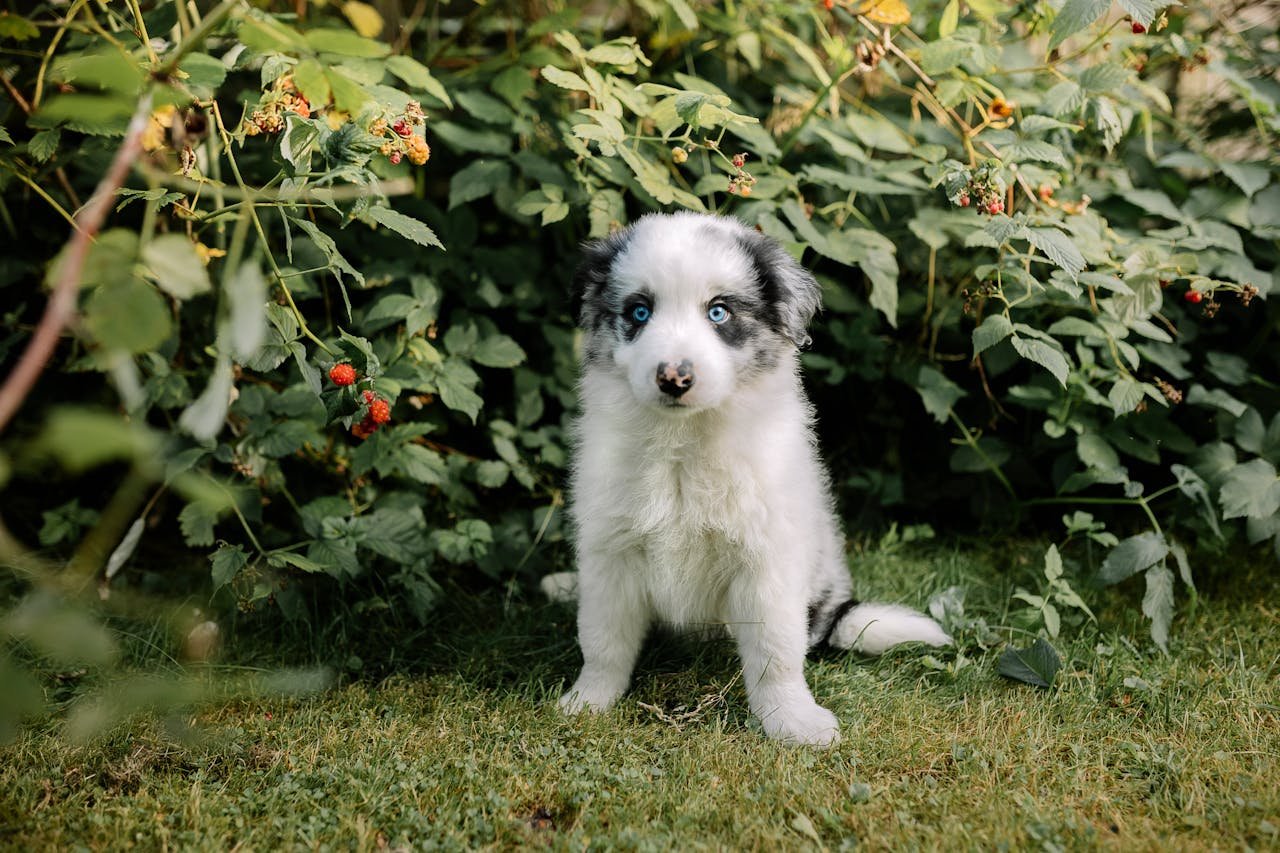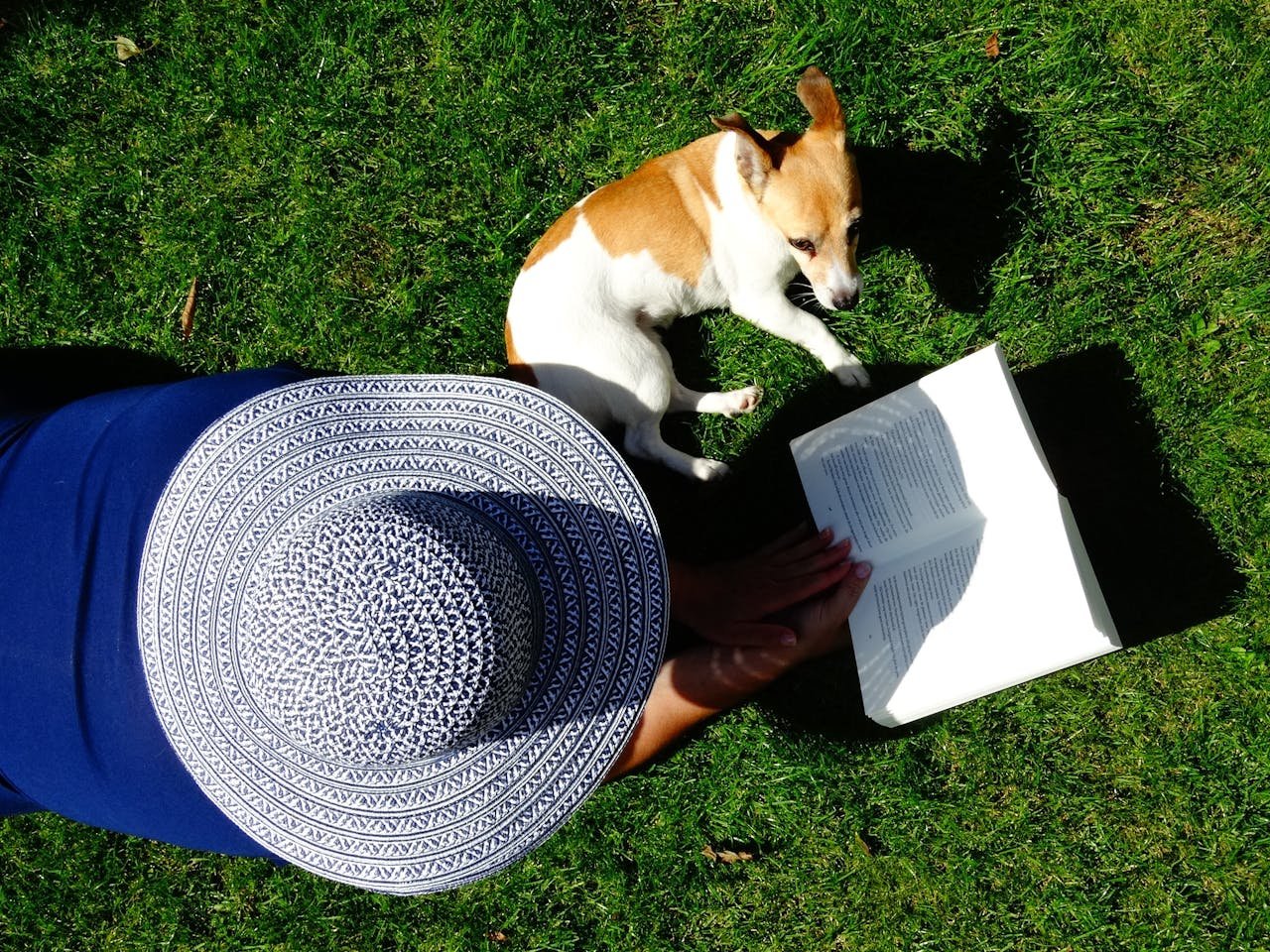Dog Safety: How to Dog-Proof Your Garden
If you like spending time in your garden, it’s the perfect place to enjoy with your dog.
If you’ve just got a new puppy or dog and you’re wondering how to make your outdoor space as dog-friendly as possible, here are a few things you can do.

- Check the boundary - if possible, install a sturdy fence around your garden and check for any gaps.
-
Toxic Plants - check your plants! There are lots of garden poisons that can be a risk. Make sure you don’t have anything toxic that they might ingest.
-
Use barriers - If you have something you don’t want pup to get into use barriers. You can use things like raised planters or netting (but supervision might be the best call here until training kicks in).
-
Give them their own space - You can provide areas for their enrichment like a digging area, a sensory area, shaded hideout or even a place to toilet. Chances are they’ll invade the whole garden, but if you work with them they’ll soon know what they can do. Make their spaces extra enticing so they’ll enjoy spending time there.
-
Secure bins - If your bins are in the garden, make sure your dog can’t get into them, especially the food/compost bin. Mouldy food is very toxic to dogs so it’s best to keep it out of reach.
-
Be mindful of what you use - if you’re a keen gardener you might use things like slug pellets or weed killer - these are toxic to dogs, so check for dog-friendly alternatives that won’t cause them harm if they do come across it.
 Is it safe to let my puppy in the garden?
Is it safe to let my puppy in the garden?
We’d always recommend getting advice from your vet. Every dog is individual and it’s best to follow your vet’s recommendations.
However, general guidance is that as long as your garden is safe, secure and not used by other unvaccinated dogs, your pup can go out. It’s a great time to start toilet training and building up their confidence.
You can still bring them out and about (if they are small enough to carry) to get used to the big wide world, but don’t let them on the ground until they’ve had all the necessary vaccinations.
Tips to Help Toilet Train Your New Puppy
How do I keep my puppy safe in the garden?
Keeping your garden dog-friendly can be a bit of a challenge! From plants to escape routes, there’s always something to look out for. But once you’ve ticked things off your list you’ll be free to make some happy memories!
Our Guide to Positive Puppy Training
Dog-friendly plants for your garden
If you love gardening, you will already have a good idea of what you can and can’t plant if you have pets! However, if you’re doing a garden renovation and want to make sure what you plant is safe for your dog, here are a few suggestions:
-
Snapdragons
-
Herbs - a variety of herbs and safe for dogs (basil, cilantro, dill, lemon balm etc).
-
Sunflowers
-
Bamboo
-
Vegetables (things like beetroot, butternut squash, cucumber etc)
-
Boston Ferns
-
Spider Plant
-
Flamingo Plant
-
Hibiscus
ASPCA have a list of plants non-toxic to dogs on their website.

Garden Hazards for Dogs
Here are a few other things you might want to watch out for:
- Stings and bites
Just like us, our dogs can suffer from stings or bites. A sign that your dog has been stung is redness, pain and swelling in the location of the sting. They may also keep licking the area. Stings can be serious so give your vet a call to check if you have any concerns.
- Barbecues
Barbecues pose a danger to dogs for several reasons. Be careful your dog doesn’t get too close to the barbecue. You’ll also need to make sure they don’t manage to get hold of things like skewers, rubbish and sharp bones
- Water
Most dogs love water - especially in hot weather. If you have a pond or a water feature in your garden, make sure it is safe for your dog and doesn’t pose a danger to your pet. Behave as you would with children and fence off the pond if you have any safety concerns.
Ponds are also home to algae which can produce toxins which may be harmful. The blue-green algae can be highly poisonous to dogs, causing vomiting, diarrhoea, breathing problems and more. If you suspect your dog has ingested any contaminated water, call your vet straight away.

It’s not always possible, but if you have a puppy or a dog that’s getting settled it’s best to supervise them at all times until you know they can be trusted in the garden alone.
Make time to play and enjoy the garden together. Hide treats or toys and give your dog plenty of things to keep entertained in your new dog-friendly outdoor space!